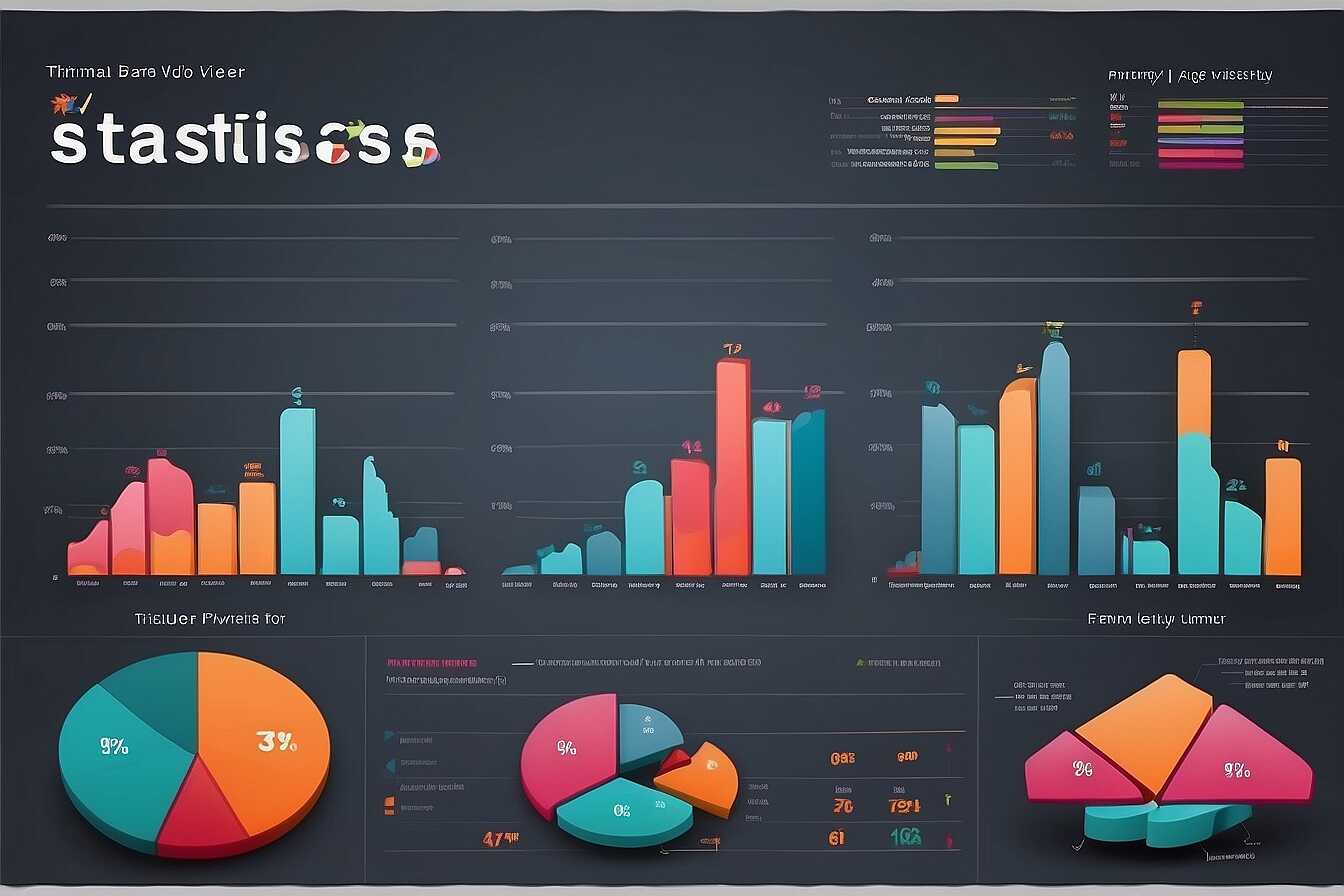AI strategies for optimizing SEO are vital for adapting to Google’s Helpful Content Update. Understanding how to integrate AI into your SEO efforts can significantly enhance your content’s performance and relevance. At Metrics Rule, we believe that leveraging AI tools not only streamlines the SEO process but also ensures the creation of user-focused content. By focusing on effective strategies, SEO professionals and digital marketers can navigate these changes and improve their rankings.
Importance of Google Helpful Content Update in SEO
The primary goal of Google’s Helpful Content Update is to enhance the quality and relevance of content found in search results. SEO practitioners must focus on strategies that prioritize user experience and engagement over generic optimizations. This means leveraging AI technologies to analyze user data effectively, improve content quality, and tailor SEO efforts to meet the expectations set by Google’s evolving algorithms. SEO professionals should adopt diverse methodologies, including creating original content, optimizing for featured snippets, and delivering genuine answers to user queries. Since its launch in 2022, Google has introduced several major updates that emphasize the importance of content quality and user trust, making it essential for SEO experts to keep pace with these changes.
Strategies to Align with Google Helpful Content Update
Aligning with the Google Helpful Content Update involves enhancing content quality and ensuring it meets user needs effectively. First, we recommend conducting thorough keyword research to identify relevant themes and topics. By using AI-assisted tools to analyze competitor content, SEO professionals can better understand what resonates with the target audience. Additionally, focusing on original research and user-driven content can improve engagement. Timely updates and high-quality visuals can also enrich user experiences and elevate SERP rankings. Metrics Rule emphasizes the importance of these strategies to enhance reliability and performance in content marketing by providing data-driven insights.
Focusing on User Intent for Effective SEO
Understanding user intent is crucial for improving SEO strategies. It helps businesses create content tailored to the specific needs of their target audience. By recognizing what users are searching for and why, marketers can enhance their content to meet these expectations. Practical SEO strategies include utilizing keyword intent analysis and content analysis techniques. Businesses should aim to identify how search queries align with user intent. Approximately ten factors should be considered for optimizing content effectively to achieve the best results in search engine rankings.
Key Methods for Identifying User Intent in SEO
Identifying user intent involves analyzing search queries to discern whether they are navigational, informational, or transactional. Start by sorting your keywords into these intent categories. For e-commerce sites, focus on transactional keywords, which are essential when users are ready to make a purchase. Employ tools like Google Trends and Google Analytics to gather data on user behavior and search patterns. The more granular your analysis, the better you can adjust your SEO strategies to align with specific user intent. Continuous keyword intent analysis will enhance your content’s relevance, ultimately improving user engagement and boosting your search rankings.

Implementing AI Tools for Streamlined Content Creation
Several popular AI tools, such as Jarvis, Writesonic, and Copy.ai, facilitate efficient content creation processes. These tools generate relevant and engaging content tailored to user needs. They also enhance the SEO process by enabling keyword research and ensuring that the content meets search engine requirements. Research shows that in 2023, over 65% of marketers reported improved content efficiency using AI technologies, making them essential for businesses aiming to increase their visibility.
Exploring the Best AI Tools for SEO and Content Development
When considering the best AI tools for SEO and content development, Jarvis stands out for its ability to understand context and create high-quality content. Tools like Clearscope are designed specifically for optimizing content density and relevance, ensuring it ranks well on search engines. Other tools, such as MarketMuse, focus on improving keyword strategies by analyzing top-performing content and helping users identify content gaps. These advancements make it easier for marketers and content managers, particularly in Vancouver, to produce SEO-friendly content while saving time and improving overall performance.
Key Metrics Following the Search Engine Update
- Over 70% of SEO professionals reported adapting their strategies post-update.
- Google processed around 3.5 billion searches daily, highlighting increased competition.
- More than 60% of marketers prioritize AI tools for content optimization efforts.
- Content that meets user intent can improve click-through rates by about 20%.
- Studies show that 90% of users prefer high-quality content, making relevance key.
- Websites that leverage AI see 30% faster content creation times.
- Analytics tools indicate a 25% average improvement in organic rankings for updated content.

Identifying and Closing Content Gaps for Better SEO
Identifying content gaps is crucial for optimizing your SEO strategy. Start by conducting a thorough content audit to pinpoint articles that lack depth or relevance. Tools like Google Analytics, SEMrush, and Ahrefs help analyze metrics such as organic traffic, bounce rates, and user engagement. Effective methods involve comparing your content with high-ranking competitors to discover missing keywords or topics. Research popular queries related to your niche, and enrich your articles with proven data and relevant visuals. Regularly updating your content will ensure it meets Google’s standards and enhances your search engine performance.
Tools for Content Gap Analysis and Improvement
Several tools automate the process of identifying content gaps and can significantly enhance existing content. Tools like Moz and SurferSEO not only analyze keyword performance but also provide recommendations for optimizing your articles. Implement AI technologies for keyword research to understand what phrases are trending or gaining momentum. For instance, keyword clusters can help categorize similar search intents, making content creation more efficient. Ensure your content includes reliable internal linking to keep users engaged and increase dwell time. By using these resources, you can create more extensive and relevant content that appeals to both users and search engines.

Optimizing Technical SEO for Enhanced Crawling
To enhance crawling and indexing, focus on key technical aspects of SEO. Improving website speed plays a crucial role, as faster sites are more likely to be crawled efficiently. Organizing your sitemap correctly ensures search engines can easily find and index your content. Additionally, mobile optimization is essential; a responsive design enhances user experience, which search engines recognize and reward. Implementing these strategies leads to better overall performance and reliability in your SEO efforts.
Improving Website Speed for Better SEO Results
Website speed can significantly impact SEO performance and user experience. Aim for a loading time of under three seconds to retain users and improve your page’s ranking. Compress images and leverage browser caching to enhance speed. Use tools like Google PageSpeed Insights to test your website’s speed regularly. By addressing any issues revealed in your reviews, you ensure a fast and efficient user journey. This not only benefits your visitors but also helps search engines crawl your site more effectively, leading to higher indexing rates and better search engine results.
Advantages of Using AI for Content Enhancement
- Automation can dramatically save time on data collection and analysis tasks.
- AI-driven content strategies align well with Google’s Helpful Content Update.
- AI tools enhance keyword research, revealing hidden opportunities for optimization.
- Using AI can improve personalization, increasing user engagement significantly.
- AI can analyze competitors effectively, making strategies more competitive.
- Content generated with AI tends to have fewer grammatical errors and enhances quality.
- Integrating AI aids in identifying content gaps, helping to maintain visitor interest.

Harnessing AI for In-Depth Keyword Research
AI enhances the reliability of keyword research by providing data-driven insights that improve accuracy. With AI tools, you can analyze vast amounts of search data quickly, identifying trends and opportunities for targeted keywords. Effective use of AI also improves overall SEO keyword strategy, optimizing content to meet user intents. When searching for the best AI tools for keyword analysis, platforms like Ahrefs, SEMrush, and Moz are essential. These tools offer features like competitor analysis and keyword performance metrics, which provide insights into which keywords will yield the best results. Typically, a well-optimized piece of content should target around 5 to 20 relevant keywords per page to achieve maximum visibility.
Exploring Effective AI Tools for Keyword Research
Exploring AI keyword analysis tools reveals features that can significantly streamline your SEO efforts. For example, tools like Keyword Planner and Ubersuggest offer excellent capabilities for uncovering long-tail keywords. These keywords tend to have lower competition, enhancing your chances of ranking well. Using AI-driven keyword research software helps you discover keywords based on real-time search performance metrics, ensuring you focus on terms that can effectively drive traffic to your site. Moreover, AI can analyze user behavior, providing insights into what your target audience is searching for. By adopting these AI tools, you can easily enhance your keyword strategy, ensuring your content remains relevant and competitive in search engine results.
Utilizing Data Analytics for Tracking Content Success
Data analytics is essential for assessing content performance following the Google Helpful Content Update. Key metrics to track include organic traffic, bounce rates, user engagement, and conversion rates. These metrics provide insights into how effectively your content meets user needs and aligns with Google’s quality expectations. SEO professionals can utilize various data sources, including Google Analytics, Search Console, and social media insights. By comparing these data sources, users can determine the effectiveness of their SEO strategies. Studies show that properly analyzing data and optimizing content can lead to a traffic increase of 30% or more with targeted adjustments.
Essential Metrics for Analyzing Content Effectiveness
Understanding essential metrics for analyzing content effectiveness helps SEO professionals pinpoint areas for improvement. Metrics such as organic search traffic, user engagement time, and click-through rates offer reliable insights into user behavior. By leveraging AI technologies, users can efficiently categorize and evaluate content performance. For example, tracking how long visitors stay on a page can provide indicators of content quality. This analysis enables quick adjustments, ensuring that content resonates with your target audience while adhering to the standards set by Google. Consistent measurement and optimization based on these metrics are crucial strategies for long-term SEO success.
Brands and Their Impact on Content Strategies
- Ahrefs offers excellent backlink analysis but may overwhelm beginners.
- SEMrush provides comprehensive tools but can be pricey for small businesses.
- Moz features user-friendly interface but has limitations in data accuracy.
- Yoast helps optimize WordPress content but lacks in-depth SEO insights.
- BuzzSumo focuses on content performance but may not cover all SEO aspects.
- Google Analytics is essential for tracking engagement but requires setup effort.
- Content marketers benefit most from brands that offer easy integration with their platforms.
Adapting SEO Strategies for Long-Term Success
To ensure long-term success in SEO, professionals must regularly review and adapt their strategies. Effective methods include leveraging data-driven insights to track performance and optimize content. Utilizing AI tools can help professionals understand search engine updates and shift focus as Google’s algorithms evolve. Incorporating regular testing into your SEO practices ensures that you stay ahead of the competition, while data reviews provide reliable feedback to improve performance. Regular audits of your keywords and on-page elements are also essential for long-lasting optimization and growth.
Maximizing the Impact of AI Tools in SEO
AI tools for SEO can enhance content creation and optimize your overall strategy. These tools provide reliable insights by analyzing large datasets, allowing you to compare your current practices with industry standards. By focusing on data-driven content optimization techniques, SEO professionals can develop more engaging and relevant materials. This approach also improves efficiency in keyword research, enabling users to easily identify high-value opportunities. As a result, leveraging AI in SEO will significantly boost your website’s ability to respond to search engine updates, ensuring maximized performance over the years.
